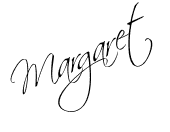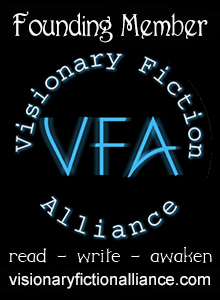Your critique partners are frustrated with you, as are the few trusted friends you’ve allowed to read your novels over the years. They think your work is ready for submission, that you’re being over-critical—that you’re afraid of rejection.
“What are you going to do,” they ask, “spend the rest of your life revising?”
“Of course not,” you say. “But I’m not sending out my work until it’s ready.”
Your mother warns, “Better hurry, I’m not going to live forever.” Your spouse frets while you type and retype and your mind floats in the clouds. He thinks this is just a hobby and that you’re…well…wasting your time.
But are you? Is practicing, studying, and revising a waste of time?
I think not.
I’ve heard that it takes 10,000 hours of deep practice to get really good at something, which translates into approximately ten years. In what other occupation are you expected to be an immediate success? Maybe your novel isn’t ready, and, although it’s painful (and embarrassing) to wait, you may need to stand firm a little longer.
Elizabeth Lyon, author of The Sell Your Novel Toolkit writes, “most [novelists] market too soon—before their manuscripts are polished. In fact, I believe that only one percent of the novels submitted for publication are both structurally correct and appropriately polished.”
As Literary Agent Janet Reid points out, “A query letter is the foundation upon which your publishing career rests, so remember: You can query too soon; you cannot query too late.”
So, you may ask, what does one do in the mean time?
Become a better writer, of course.
And how might that be?
Let me share some of the ways I’ve discovered in the past few years to keep growing as a writer.
Growing as a Writer
1, Take a creative writing course. It’s amazing what you discover about yourself and your writing when you spend time with highly motivated, articulate, and interesting writers.
2. Join a critique group. Being critiqued is tough at times, but everyone is in it together and no one is spared. An added bonus is that it’s easier to see problems in your own work once you’ve learned what to look for through critiquing.
3. Attend a writer’s conference. Conferences vary widely in form and offerings, but there are many opportunities to choose from. Depending on the conference, you can:
• Get manuscript critiques from agents, editors, and well-published authors.
• Perfect your pitch, query letter, or synopsis in specific workshops.
• Pitch your work directly to one or more agents or editors.
• Learn about a wide of craft, marketing, and publishing topics.
• Connect with other writers interested in learning and generous enough to share what they know.
4. Try other forms of writing. Step out of the comfort zone you are writing in and try other forms or genres. Write a poem, a picture book, a short story.
5. Enter a contest. But not just any contest. Be selective:
- Make sure the contest is reputable and will add to your writing resume.
- Be clear about who is judging and the expertise they bring to the table.
- Decide whether the potential prize—publication contract, exposure to agents or editors, critique feedback, submission experience, or money is worth the entry fee.
6. Apply for a fellowship. Win or lose, it’s amazing what a feeling of accomplishment you can feel when sending out the application form.
7. Blog. Yes, there are arguments against blogging for an unpublished writer:
- You have nothing to promote.
- It will distract you from your work in progress.
- Blogging won’t lead to publication.
- There are a zillion blogs out there, so who’s going to read yours?
But with blogging, the reality is, you have to start somewhere, and you have to start early, before you really need it. Get familiar with the tools and technologies, grow and improve, so when you do get published, you’ll be ready. This is especially true if you’re technologically challenged like me.
8. Read in your genre and study books about the craft. There are many excellent books available. Here are some that have helped me:
- From Where You Dream by Robert Olen Butler
- Hooked and Finding your Voice by Les Edgerton
- Techniques of the Selling Writer by Dwight V. Swain
- The First Five Pages by Noah Lukeman
- Subtext by Charles Baxter
- Thanks, But This Isn’t For Us, by Jessica Page Morrell
- Get Known Before the Book Deal, by Christina Katz
- Break into Fiction by Mary Buckham and Dianna Love
Some might call this writing journey an obsession. I call it having the time of my life.
And, of course, growing as a writer.
Remember: “Patience is also a form of action.” ~Auguste Rodin
As always, thanks for stopping by,



I agree with all this, but as your critique partner, I know you're ready to submit. Because you've done all those things..
Soon, Lee, soon. Thanks for the vote of confidence.